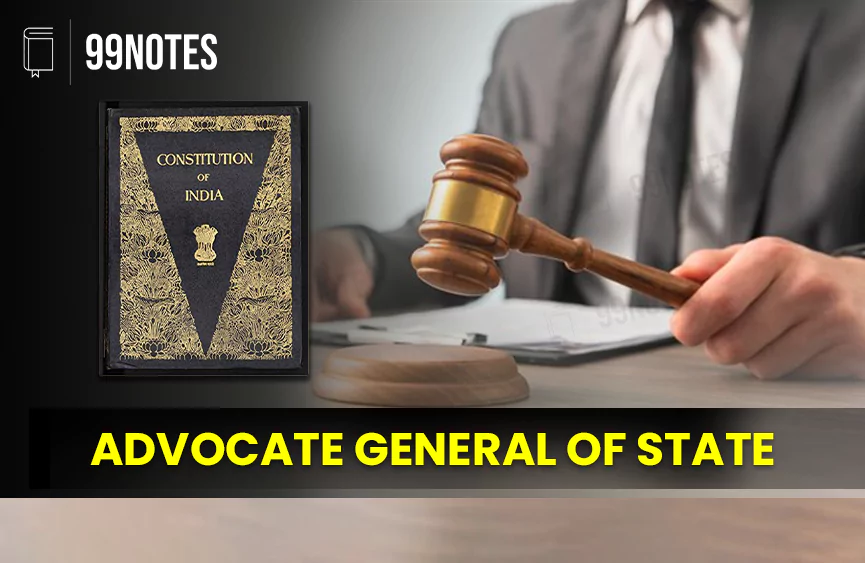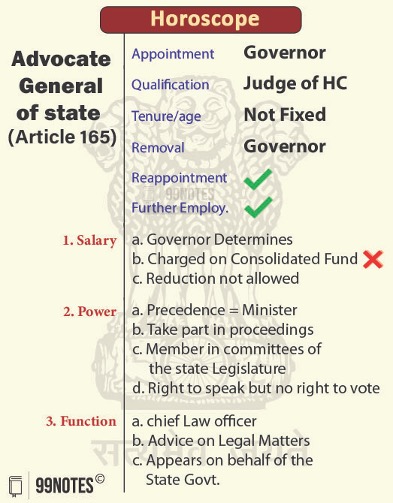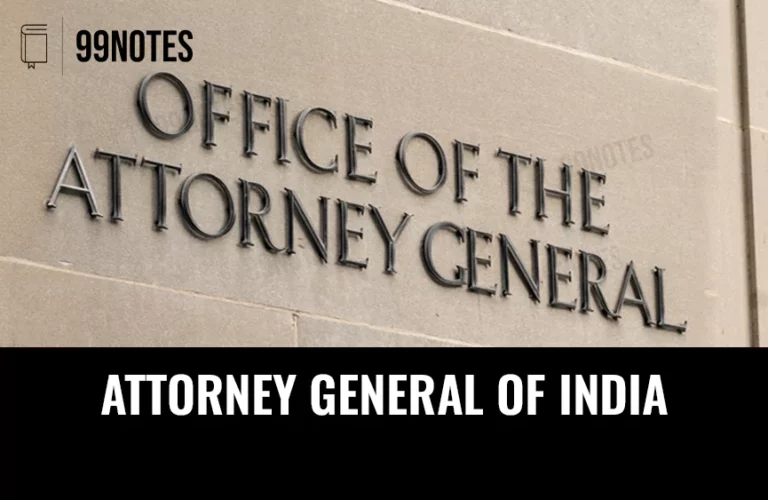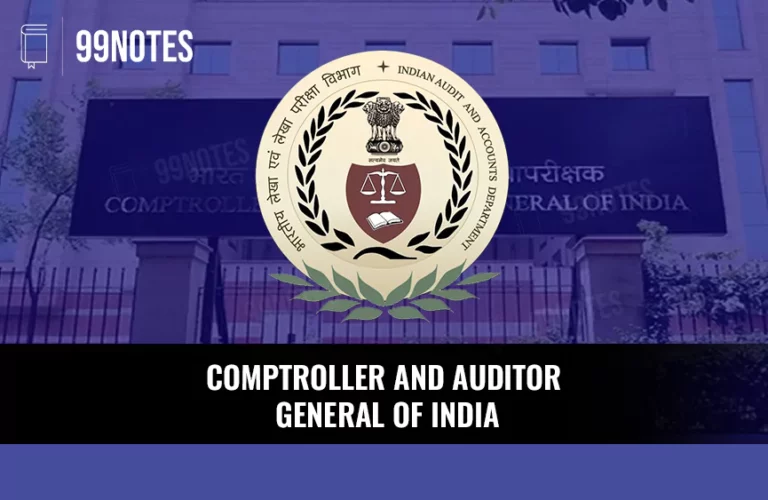Advocate General of State (Article 165): Indian Polity Notes for UPSC
Advocate General of State
The office of the advocate general for the state is mentioned in the constitution under Article 165. He is the senior law officer for the State Executive. Thus, he is equivalent to the Attorney General of India in the state.
Who is the Advocate General of the State?
In India’s federal setup, the state is one of the constituents of the national polity. The state, in many cases, is litigant in the court of law. It is represented by a group of law officers headed by the Advocate General, who is the Supreme law officer of the state. Various law officers in a State consist of Additional Advocate Generals, Government Counsel, Additional Government Counsel and Deputy Government Counsel.
The Advocate General and his Law Officers are generally engaged to deal with court cases in the High Court in which state is a party. Thus, the relationship between the Government and Law Officers is that of a client and counsel. The Advocate General and his office defend and protect the interest of the State Government and give invaluable legal guidance to the State Government in the formulation of policy and execution of its decisions.
Terms of Service of the Advocate General of States
- Appointment: The advocate general of the state is appointed by the governor.
- Qualification:
- He must be qualified to be appointed as judge of a High court. In other words,
- He must be a citizen of India and
- He must have held judicial office for 10 years or been an advocate of a high court for 10 years.
- Term of the office: the term of the office of the advocate general of the state is not mentioned in the constitution.
- Removal: the constitution of India does not mention the procedure and grounds for his removal. He holds office at the pleasure of the governor, which means the governor may remove him at any time.
- Resignation: By submitting his resignation to the governor, he may quit his office. Further, he resigns when the government resigns or is replaced he resigns when the government resigns or is replaced, since he is appointed on the advice of the government (council of ministers) conventionally.
- Remuneration: The constitution of India does not mention the remuneration of the advocate general. He may receive such remuneration as the governor may determine.
Duties and functions of the Advocate general
Under Article 165(2) of the constitution, the following duties have been enumerated:
- Advice to the government: The Advocate general advises the state government upon such legal matters referred to him by the governor of the state.
- Additional Duties and functions: S/he carries out additional duties that are in the legal character that the governor assigns him, and discharges such additional functions which are conferred on him by the constitution or any other law.
- In the performance of the above duties, he is entitled to:
- Appear before any court of law within the state.
- Right to speak and take part in any proceedings in the state legislature or any committee of which he may be named a member without the right to vote. (Article 177)
- Enjoy all the privileges and immunities that are available to the members of the state legislature.
Difference between Attorney General of India and Advocate General of the State
| Attorney General | Advocate General | |
| Article | Article 76 | Article 165. |
| Appointment: | President | Governor |
| Qualification: | qualified to be appointed as judge of a Supreme court. | qualified to be appointed as judge of a High court. |
| Term of the office: | Not mentioned in the Constitution: Decided by the Union Government | Not mentioned in the Constitution: Decided by the State Government |
| Removal: | At the Pleasure of the President (i.e. the Union govt.) | At the Pleasure of the Governor (i.e. the state govt.) |
| Resignation: | To the President; and conventionally resigns when the government falls. | To the Governor; and conventionally resigns when the government falls. |
| Remuneration: | Decided by the Union Government | Decided by the State government. |
| Duties: | 1. Primarily Advices the Union government.
2. Appear before any court of law within the country in higher Judiciary where the govt. is party. 3. Bound by legal duties assigned by the President. 4. Represents government view in matters of advisory jurisdiction of SC. 5. any other function under law |
1. Primarily Advices the State government.
2. Appear before any court of law within the state in higher Judiciary where the govt. is party. 3. Bound by legal duties assigned by the Governor. 4. any other function under law |
| Privileges | 1. Right of audience in all courts in the territory of India.
2. Right to speak and take part in the proceedings of both house of the Parliament. (Article 88) 3. Immunities and Privileges like an MP. |
1. No Right of audience clause in the Constitution.
2. Right to speak and take part in the proceedings of the state legislature. (Article 177) 3. Immunities and Privileges like a Member of state legislature. |









